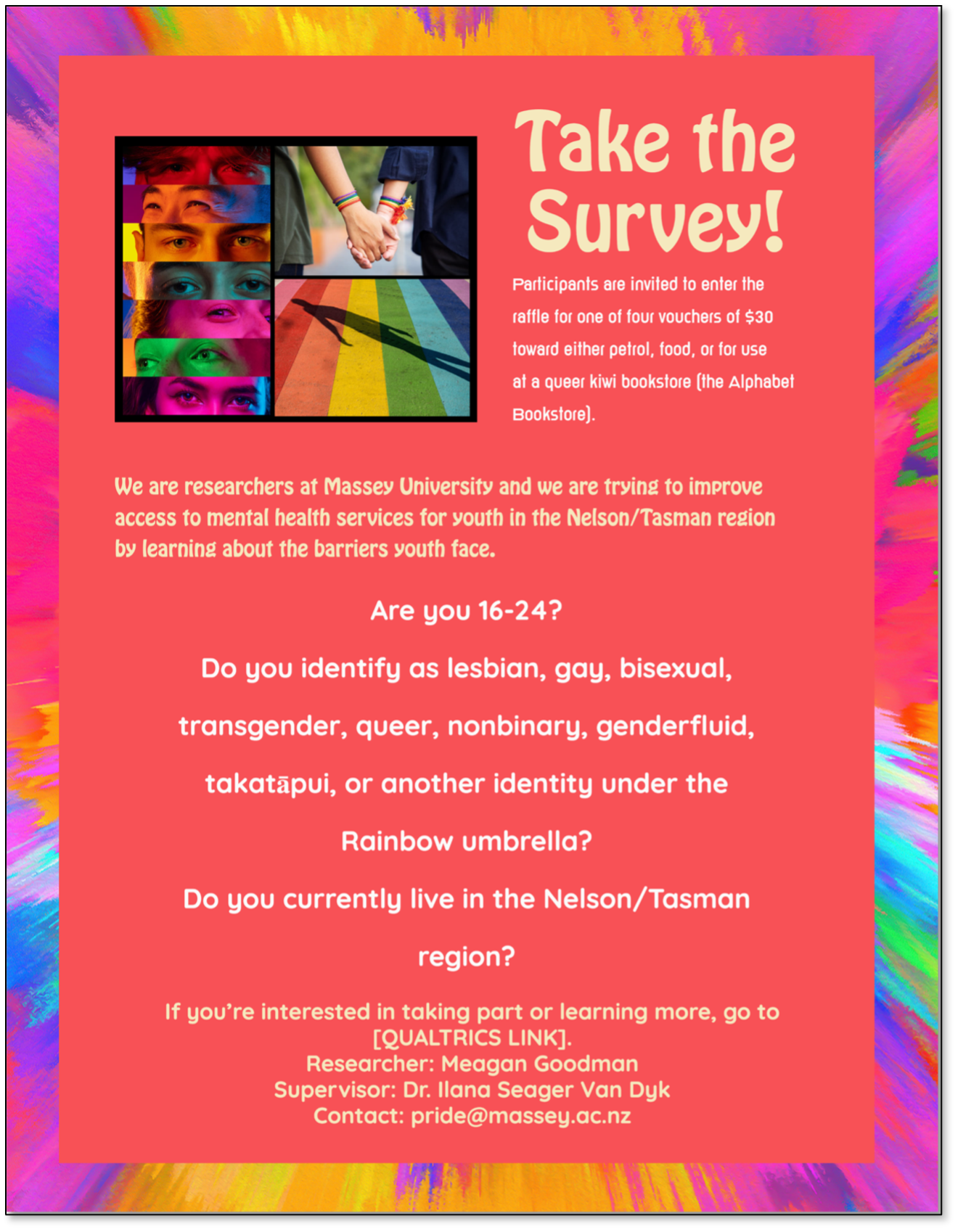Mental health service access for Rainbow rangatahi in Nelson/Tasman
Project Title: Rainbow youth experiences of mental health services in the Nelson/Tasman region : a mixed-method analysis
Lead Researcher: Meg Goodman
Rainbow young people (defined as 16–24-year-old people that hold diverse sexualities, genders, and sex characteristics) in Aotearoa New Zealand disproportionately experience higher rates of mental distress and adverse mental health outcomes compared to their cisgender and heterosexual counterparts. However, little is known about the experiences of rainbow young people who attempt to access mental health support in rural and semi-rural regions. To address this gap, I conducted a mixed-methods, community-based research project in the rural/semi-rural Nelson/Tasman region. My aim was to elucidate rainbow youth experiences of mental health support in this area and identify recommendations that would improve the provision of mental health care for rainbow youth in Aotearoa. I designed and distributed two online surveys to potential participants in the Nelson/Tasman region — one for health professionals working with young people (n = 44) and the other for rainbow young people who had sought mental health support (n = 81) — as well as conducted 10 semi-structured interviews with rainbow young people. Surveys and interviews assessed rainbow youth's experiences with mental health services, perceived and actual barriers to receiving care, and recommendations for improving the provision of mental health care to rainbow young people. Rainbow young people in Nelson/Tasman reported mixed experiences with mental health services; however, all participants experienced structural barriers to accessing appropriate support, such as lack of availability from health professionals, high cost for services, and fears about confidentiality and identity being misunderstood. Rainbow youth and health professionals made numerous recommendations to improve access and quality of mental health services for rainbow young people. Overall, my research demonstrates the structural barriers that exist for rainbow youth accessing mental health support, and highlights the need to develop rainbow cultural competency among healthcare professionals working with young people in Aotearoa. Knowledge from this thesis can be used to improve the provision of healthcare for rainbow youth in the Nelson/Tasman region and beyond.
To read Meg’s full thesis, click here.
